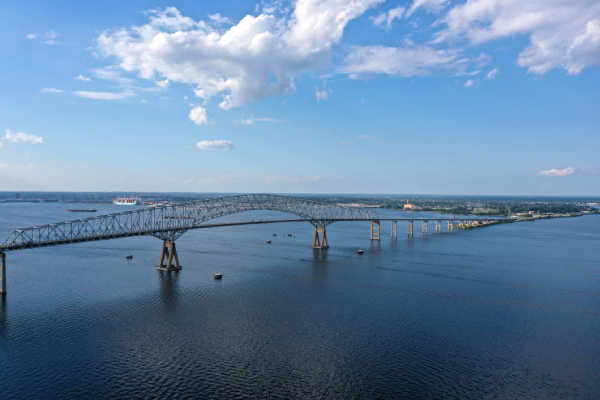The Francis Scott Key Bridge in Baltimore was struck by a 948-foot cargo ship and collapsed early Tuesday morning, causing the bridge and several cars to fall into the Patapsco River.
The vessel reportedly lost power and drifted into the bridge at approximately 1:28 am. Onlookers saw the ship's lights turn on and off multiple times before the collision.
Maryland governor Wes Moore said that the ship's operators managed to issue a mayday call immediately before the collision, allowing police to limit vehicle traffic on the bridge.
Effect on Supply Chain
The collapse of the Key Bridge, a critical part of Baltimore's infrastructure, will have major implications on the supply chain. The Port of Baltimore is the biggest handler of US imports and exports of cars and light trucks, handling 847,158 autos and light trucks in 2023. It also processes farm and construction machinery, sugar, gypsum, and coal.
For more on the bridge collapse, read the full article on our sister site, Supply Chain 247: Baltimore's Francis Scott Key Bridge Collapses After Cargo Ship Collision
SC
MR


More Supply Chain Disruption
- Understanding organized labor’s impact on our supply chain
- Teamsters union serves Canadian National Railway with strike notice
- Inflation continues to have a wide-ranging impact on supply chains
- Planning fatigue may be settling in
- Baltimore Bridge Collapse Latest Supply Chain Disruption
- More Supply Chain Disruption
What's Related in Supply Chain Disruption

 Explore
Explore
Business Management News
- Retail sales see gains in October, reports Commerce and NRF
- Balancing green and speed: Home delivery insights from the pandemic era
- AdventHealth named top healthcare supply chain by Gartner
- Unlocking retention: The role employee engagement plays
- Can supply chain managers embrace an entrepreneurial mindset?
- Challenges to ESG reporting
- More Business Management
Latest Business Management Resources

Subscribe

Supply Chain Management Review delivers the best industry content.

Editors’ Picks




